Contract Jurisdiction

What are the legal implications of using smart contracts ?
Smart contracts, self-executing contracts with terms written in code on a blockchain, raise legal questions about enforceability, jurisdiction, privacy, security, and regulatory compliance. Best practices include consulting a legal expert, clearly defining terms, considering jurisdiction, and prioritizing privacy and security.

What is the difference between a regular contract and a smart contract ?
A regular contract and a smart contract differ in terms of their **nature**, **enforceability**, **cost**, **speed**, and **transparency**. Below are the key differences between these two types of contracts: ## Nature ### Regular Contract - Legal agreement between two or more parties. - Typically written in natural language (e.g., English). - Governed by local laws and regulations. ### Smart Contract - Self-executing contract with the terms directly written into code. - Deployed on a blockchain network. - Enforced by the underlying code and cryptographic protocols. ## Enforceability ### Regular Contract - Relies on legal institutions for enforcement (e.g., courts). - May involve mediation or arbitration processes. - Penalties for breach can be monetary or involve other forms of relief. ### Smart Contract - Autonomously executes when predetermined conditions are met. - Enforcement is decentralized and automated. - Penalties for breach are typically programmed into the contract logic. ## Cost ### Regular Contract - Can be costly due to legal fees, notary services, and potential litigation expenses. - Involves overhead of paper-based record keeping and manual processing. ### Smart Contract - Generally less expensive because it eliminates intermediaries. - Costs associated with blockchain transaction fees and contract deployment. ## Speed ### Regular Contract - Time-consuming process from negotiation to signing and execution. - Settlement times can vary widely depending on the complexity of the agreement. ### Smart Contract - Faster execution once the conditions are met. - Real-time settlements possible due to automation. ## Transparency ### Regular Contract - Limited transparency; only involved parties have access to the contract details. - Requires trust in the counterparty to disclose all relevant information. ### Smart Contract - High transparency; contract code and transactions are visible on the blockchain. - Trust is placed in the immutable and verifiable nature of the blockchain.

What is a smart contract ?
Smart contracts are self-executing contracts with the terms of the agreement between buyer and seller being directly written into lines of code, which exist across a distributed, decentralized blockchain network. They allow for transactions and the transfer or distribution of cryptocurrencies to be executed automatically without the need for a central authority, legal system, or external enforcement mechanism. Smart contracts are autonomous, immutable, traceable, and decentralized. They have various use cases such as cryptocurrency transactions, insurance claims, supply chain management, real estate transactions, gambling and betting, and legal documents. The benefits of smart contracts include efficiency, transparency, security, speed, and accuracy. However, there are challenges and considerations such as code quality, lack of legal recognition, interoperability issues, and privacy concerns.

How can schools address the issue of contract cheating, where students pay others to complete their assignments or exams ?
Addressing contract cheating in schools is crucial for maintaining academic integrity. Effective measures include using advanced plagiarism detection tools, educating students on academic integrity, encouraging open discussions, providing support services, and collaborating with parents and guardians. These strategies can deter students from engaging in contract cheating and promote a culture of original work.

What are smart contracts in the context of blockchain ?
Smart contracts are self-executing digital agreements that operate within the blockchain, providing a decentralized and trustless system for transactions. They are created using specific programming languages and deployed onto a blockchain platform. Once conditions are met, smart contracts execute automatically, with each node verifying the process to ensure accuracy. Applications include cryptocurrencies, supply chain management, real estate, insurance, and legal agreements. However, challenges like immutability, complexity, legal standing, and privacy concerns must be addressed.

Can you provide examples of international tax planning strategies ?
Here is a summary of the topic: The text discusses various international tax planning strategies that companies can use to reduce their tax liability. These include: 1\. Tax Treaty Shopping: Using provisions in tax treaties between two countries to lower taxes. 2\. Transfer Pricing: Manipulating transfer prices for transactions between related companies in different countries to shift profits to lower-tax jurisdictions. 3\. Deferral of Taxes on Foreign Income: Delaying payment of taxes on income earned in a foreign country until it is repatriated to the home country. 4\. Use of Offshore Companies: Setting up a company in a low-tax jurisdiction to conduct business activities and avoid high taxes in other countries. 5\. Cross-Border Inversions: Acquiring a company in a low-tax jurisdiction and moving the headquarters of the combined entity to that jurisdiction to reduce tax liability in the home country.

Are there any hidden fees or contracts associated with upgrading my broadband ?
When upgrading broadband, beware of early termination fees, equipment rental costs, and installation charges. Also, understand contract minimums and auto-renewal clauses before committing.
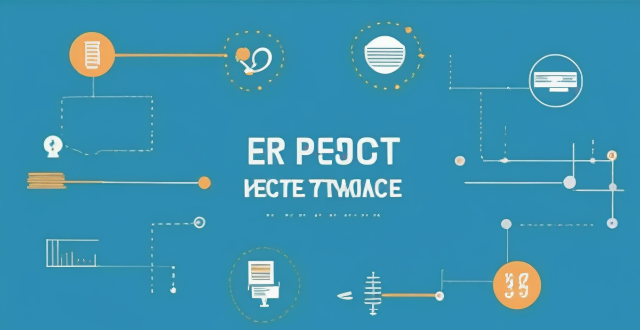
How do smart contracts work ?
Smart contracts are self-executing contracts with the terms directly written into code, operating on a decentralized blockchain network. Key features include autonomy, trustless transactions, immutability, and traceability. The working mechanism involves deployment, execution based on predefined conditions, verification through consensus algorithms, and settlement updating contract states. Benefits encompass efficiency, transparency, security, and the removal of intermediaries. Challenges include legal recognition, coding errors, and handling complex logic. Smart contracts revolutionize traditional contract law by enabling secure, automated, and transparent transactions on blockchain networks.

What are the potential risks associated with smart contracts ?
Smart contracts revolutionize digital transactions but pose risks like code vulnerabilities, legal uncertainties, lack of human oversight, interoperability issues, and privacy concerns. Users must understand these potential pitfalls before engaging in smart contract agreements to mitigate adverse outcomes.
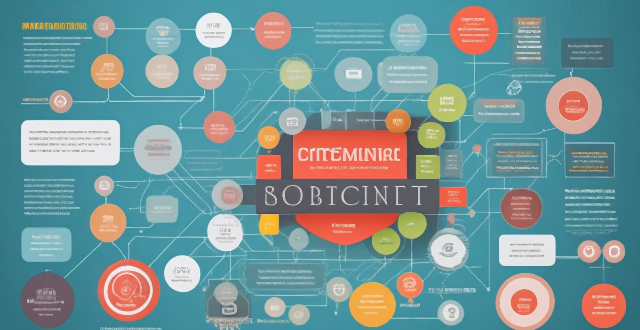
How can smart contracts be used to streamline financial transactions ?
Smart contracts can streamline financial transactions by automating processes, reducing costs, and increasing efficiency. They can automate payments and transfers, act as escrow services, create loan agreements, streamline insurance claims, and facilitate trading and exchanges of financial assets. As blockchain technology evolves, we can expect more innovative uses for smart contracts in the financial industry.

What are the benefits of hiring a sports agent for career management ?
Hiring a sports agent can bring numerous benefits to an athlete's career management, including negotiating contracts and deals, marketing and branding assistance, legal representation, and career planning and development. By working with an experienced sports agent, athletes can focus on their performance while leaving the business side of their careers in capable hands.
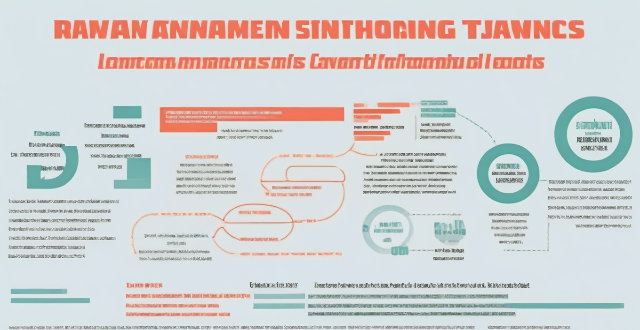
What are the legal aspects to consider in credit management ?
Credit management involves various legal considerations, including contract law, consumer protection laws, privacy laws, bankruptcy laws, state and federal laws, and collections practices. Businesses must ensure that their contracts are legally binding, disclose all relevant information about their credit products, protect customer data, understand bankruptcy laws, comply with usury laws and licensing requirements, and adhere to the Fair Debt Collection Practices Act. By considering these legal factors, businesses can maintain strong relationships with their customers while minimizing financial risks.

Can smart contracts be used in traditional businesses ?
Smart contracts, self-executing contracts with terms written into code, can be used in traditional businesses but have limitations such as legal issues and complexity. They offer advantages like transparency, efficiency, and security but also present challenges like lack of human touch and privacy concerns. Businesses should carefully consider their specific needs before adopting this technology.

What are the benefits of using smart contracts ?
Benefits of Using Smart Contracts Smart contracts are self-executing contracts with the terms of the agreement between buyer and seller being directly written into lines of code. They offer a range of benefits including automation, transparency, security, efficiency, and cost savings. By automating processes and reducing the need for intermediaries, smart contracts can save time and money, as well as reduce the risk of errors or fraud. They are secured by cryptography, which makes them extremely difficult to hack or manipulate. This security feature can be particularly useful in situations where sensitive information needs to be shared between parties. Smart contracts can also lead to cost savings by reducing the need for intermediaries or third parties. As blockchain technology continues to evolve, it is likely that we will see even more innovative uses for smart contracts in the future.

What role does sports economics play in determining player salaries and contracts ?
Sports economics plays a crucial role in determining player salaries and contracts by considering various factors such as market demand and supply, revenue generation, cost of production, risk management, competitive balance, and free agency. Teams must make informed decisions about player compensation while balancing financial considerations with the goal of achieving success both on and off the field.

How is individual income tax calculated ?
Individual income tax calculation involves determining gross income, subtracting allowable deductions, calculating adjusted gross income (AGI), identifying tax credits, calculating taxable income, applying tax rates, and considering withholding and estimated tax payments. The process varies slightly by jurisdiction but generally follows these key steps. It is recommended to consult with a tax professional or use reliable tax preparation software to ensure accuracy and maximize any applicable deductions and credits.

What are the legal requirements for data privacy ?
Data privacy is a fundamental right that ensures the protection of personal information from unauthorized access, use, or disclosure. The legal requirements for data privacy vary by country and jurisdiction, but there are some general principles that most countries follow, such as consent, limited purpose, transparency, security, onward transfer, and rights of the individual. Examples of legal requirements in different countries include the Federal Trade Commission Act, Gramm-Leach-Bliley Act, Health Insurance Portability and Accountability Act in the United States; the General Data Protection Regulation in the European Union; and the Personal Information Protection and Electronic Documents Act and Personal Health Information Protection Act in Canada.

How do I choose the right VPN service for my needs ?
Choosing the right VPN service is crucial for ensuring your online privacy, security, and accessing geo-restricted content. Here's a guide to help you make an informed decision: 1. Identify Your Needs: Determine what you need the VPN service for, such as privacy and security, accessing geo-restricted content, bypassing censorship, or improving gaming experience. 2. Check the VPN's Location and Jurisdiction: The legal jurisdiction of the VPN provider plays a significant role in your privacy. Look for providers located in countries without strict data retention laws. 3. Encryption and Protocols: The level of encryption and the protocols offered are critical for security. OpenVPN and IKEv2 are considered the most secure and efficient. Avoid VPNs that rely on PPTP or L2TP/IPSec without a separate encryption layer. 4. Server Network and Speed: A vast network of servers worldwide ensures better speed and connectivity. Look for a VPN with numerous servers across different continents. Speed is also crucial, especially if you plan to stream HD videos or download large files. 5. Privacy Policy and Logging: A strict no-logs policy is vital for maintaining your privacy. Always check the privacy policy to ensure they don't collect or share your data. 6. Device Compatibility and User Interface: Choose a VPN that supports all your devices, including smartphones, tablets, and PCs. A user-friendly interface makes it easier to connect and manage your VPN settings. 7. Customer Support: Look for VPNs that offer 24/7 live chat support or at least a responsive ticket system. Good customer service can help resolve technical issues quickly. 8. Price and Value for Money: While free VPNs might seem appealing, they often come with limitations, such as data caps and slower speeds. Paid VPNs offer more features and better performance. Consider the cost against the services provided to determine the best value. 9. Reputation and Reviews: Research the VPN's reputation through reviews and forums. Feedback from other users can provide insights into the reliability and effectiveness of the service. 10. Legal and Ethical Considerations: Ensure that the VPN service you choose complies with local laws and ethical standards. As per the statements from the Ministry of Industry and Information Technology, using a VPN for legitimate business purposes is protected under law. Always use VPNs responsibly and for legitimate purposes. In conclusion, choosing the right VPN service requires careful consideration of your needs, the provider's security measures, server network, privacy policy, device compatibility, customer support, and cost. By following these guidelines, you can find a VPN service that meets your requirements while ensuring your online privacy and security.

Are there any risks associated with investing in DeFi ?
Investing in DeFi comes with risks such as smart contract vulnerabilities, impermanent loss, regulatory uncertainty, and lack of transparency. It is important for investors to carefully evaluate these risks before investing in any DeFi project.

Are there any discounts or promotions available for switching to a new mobile operator ?
When considering switching to a new mobile operator, itWhen considering switching to a new mobile operator, it if there are any discounts or we will explore the various incentives that mobile operators may offer to attract new customers and retain existing ones. These incentives can include sign-up bonuses, referral programs, trade-in deals, and loyalty rewards. However, it's essential to consider factors such as contract terms, coverage, hidden fees, and compatibility before making the switch. By weighing these factors carefully, you can make an informed decision about whether switching to a new mobile operator is right for you.

What are the potential risks associated with sports sponsorship and how can they be mitigated ?
Sports sponsorship is a popular marketing strategy used by companies to promote their brand, products, or services. However, there are potential risks associated with sports sponsorship that need to be considered and mitigated. These risks include reputational risk, financial risk, and legal risk. To mitigate these risks, companies should conduct thorough research on the athlete/team before signing a sponsorship deal, ensure alignment between the sponsor's values and those of the sponsored entity, set clear budgets for sponsorship activities, monitor the performance of the sponsored entity, negotiate flexible contract terms, and work with legal experts to ensure compliance with all relevant laws and regulations. By managing these risks, companies can maximize the benefits of their sports sponsorship investments.
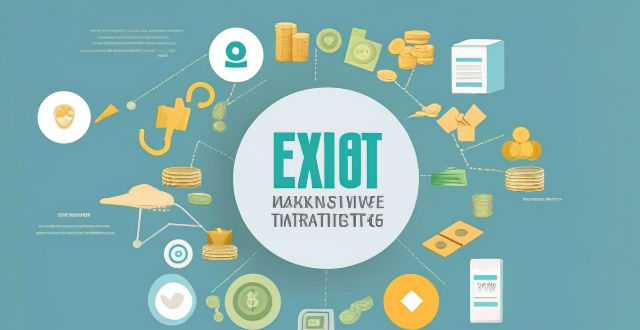
How much do celebrities typically get paid for endorsing a product ?
Celebrity endorsements are a common marketing strategy used by brands to promote their products or services. The amount of money that celebrities earn from endorsements can vary widely depending on several factors, including the celebrity's popularity, the type of product being endorsed, and the length of the contract. In this article, we will explore some of the key factors that determine how much celebrities typically get paid for endorsing a product.

What is the best cryptocurrency to invest in ?
The article provides a summary of the best cryptocurrencies to invest in, including Bitcoin (BTC), Ethereum (ETH), Binance Coin (BNB), and Cardano (ADA). It highlights the pros and cons of each cryptocurrency, such as high liquidity and widespread adoption for Bitcoin, smart contract functionality and a large developer community for Ethereum, usefulness on the Binance exchange and a burn mechanism for Binance Coin, and a strong academic foundation and focus on security and sustainability for Cardano. The conclusion emphasizes the importance of considering factors such as liquidity, adoption, and potential for growth when choosing a cryptocurrency to invest in, and encourages readers to do their own research before making an investment decision.

What are the potential consequences of communication breaches in business environments ?
Communication is crucial in any business setting, but communication breaches can have severe consequences. These can include a lack of trust, decreased productivity, negative impact on customer satisfaction, and legal consequences. Misinterpretation of information, reduced collaboration, time wasted on misunderstandings, lower employee morale, inconsistent messages to customers, delayed response times, breach of contract, and non-compliance with regulations are all potential outcomes of communication breaches. It is essential for businesses to prioritize effective communication practices to avoid these issues.

What are the hidden fees associated with my mobile operator's plan ?
Mobile operators often have hidden fees that can add up over time and significantly increase the cost of your mobile plan. These fees include activation fees, early termination fees, upgrade fees, overage charges, international roaming charges, and administrative fees. To avoid these fees, it is important to read the fine print of your mobile operator's contract carefully before signing up and consider using a prepaid plan or paying for your phone outright.

How much does it cost to upgrade my broadband service ?
Upgrading your broadband service's cost depends on the plan type, contract terms, installation fees, device rental or purchase, promotions and discounts, taxes and fees. To determine the most cost-effective upgrade, research different providers, assess your needs, contact your current provider, request a breakdown of fees, read the fine print, and finalize your decision.
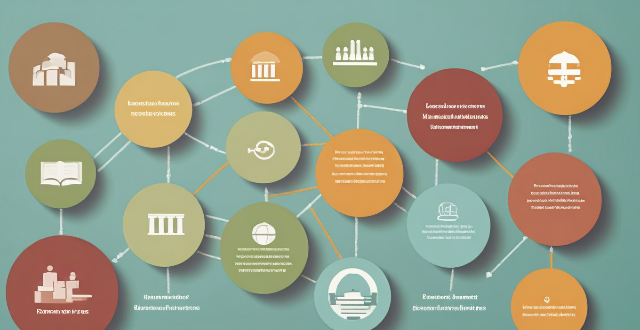
What are the legal implications of failing to meet climate targets set by international agreements ?
Failing to meet climate targets set by international agreements can have significant legal implications, including liability for damages caused by climate change, violation of international law, and domestic legal consequences. These implications can vary depending on the specific agreement and jurisdiction in question, but some common consequences include public and private claims for damages, trade sanctions, loss of funding or aid, international dispute resolution, regulatory compliance, shareholder pressure, and reputational risk.